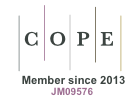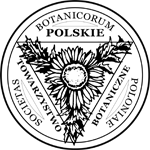Abstract
The present investigations were carried out on seeds of the spring wheat var. 'Kolibri'. Storage was at either 12 or 15% moisture seed content, and temperature degrees of labile, 0°C, 25-30°C for a periods extended to 18 months. Seeds remained -healthy at 12% M. C., and 15% and 0°C. Mycological analysis of frosh and stored seeds revealed great difference among their fungal flora. Sporadic amounts of certain fungal pathogens, from the Fusarium genus, were isolated from seeds. In relation of seed-borne fungi to the health stale of plants developing, results of pot experiments showed the possibility of spread certain pathogens of Fusarium from seed to stem of the developing plant. The fungal communities of seeds or plants does not limit, in general, the development of these pathogens Fusartum culmorum, F. poae, F. equiseti. Fusarium culmorum was found, under the present work, to be a most severe infectous agent of foot rot disease of wheat crop var. 'Kolibri'.






